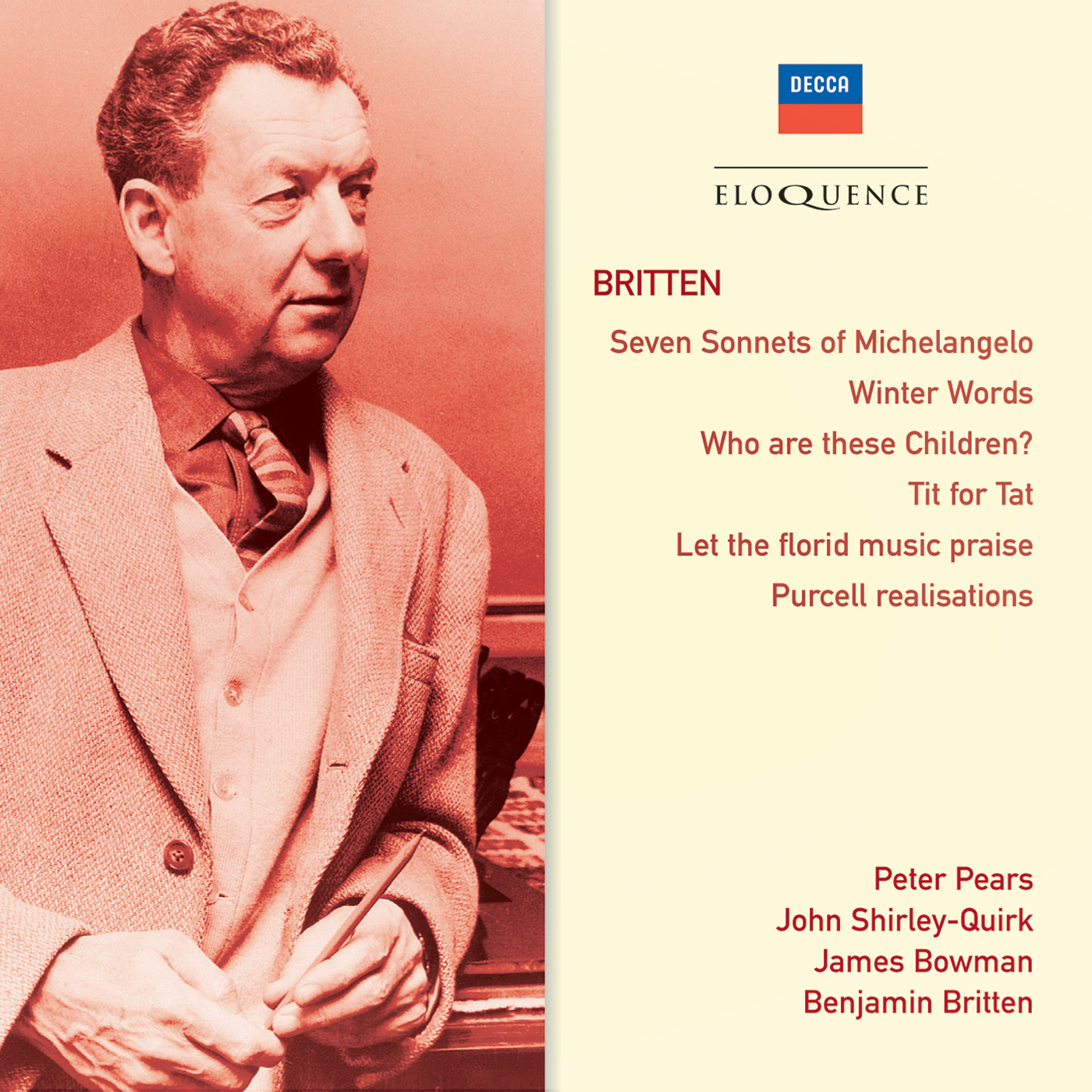Britten's Songs
With Britten himself at the keyboard!
One thing I notice when listening to Benjamin Britten playing the piano in his songs, as he does here, is he always makes voice the focal point.
This doesn't mean the piano is subsidiary. In fact, it is quite difficult on its own, but Britten doesn't make a big show of it. Instead the keyboard sets the harmonic discourse, builds the mood, provides the music atmosphere, all in a thoughtful vocal-piano relationship.
Britten's most famous settings for voice are most likely his Serenade, Nocturne, and Les Illuminations (BLOG), although they are orchestrated. Like the last of this trio, the Seven Sonnets of Michelangelo are set in a non-English language, in this case Italian. It is amazing how Britten captures an Italian song-like character amidst Michelangelo's rather personal writings, creating his own characterized sound world very different than Shostakovich in his traversal of Michelangelo (BLOG).
I love slice-of-life song cycles, where little day-to-day vignettes are presented to the listener. Such is the case with Winter Words, a vivid set of songs ranging from playfulness to frightening in mood. Let the Florid Music Praise comes from Britten's cycle On This Island, and is the most declamatory piece on the program.
This recording marks the first half of the program as coming from 1954 in mono. Do not be scared of poor fidelity here, for this is a warm, intimate recorded sound which could very well pass for stereo depending on your audio setup. Tenor Peter Pears is in solid voice in these first items, and while some do not care for his vocal style, I find his output rather attractive throughout the first part of the program in particular.
The second half comes from 1972, and in obviously more recent sound quality. Peter Pears continues with Who are these Children nearly 20 years after the others. His voice is not as secure as it was, the vibrato has loosened, but Pears makes up for it with eloquent text emphasis and declamations.
The great baritone John Shirley-Quirk sings the five songs which make up Tit for Tat with Britten at the piano again, while counter-tenor John Bowman performs Britten's realization of Purcell's Sweeter than Roses. All three singers come together in a riotous rendition of Purcell's When the Cock Begins to Crow, an excellent send-off for the program.
When I think of great 20th-Century art songs, Ralph Vaughan Williams and Samuel Barber pop first into my mind. Really, it would be rather easy to insert Britten into this list as well, for his text selection is high quality, and his writing for piano and voice is intelligent, characterful, and emotional.
While there have been many recordings of Britten's song cycles since his death, to get to the heart of his songs with Britten's compositional and performance intent, these recordings of Peter Pears with the composer at the piano are a must for any serious listener.
Works
Tit for Tat (8.42)
On This Island: Let the Florid Music (3.43)
Seven Sonnets of Michelangelo (16.59)
Winter Words, op. 52 (20.28)
Who are these Children, op. 84 (17.49)
Sweeter than Roses (3.25)
When the Cock Begins to Crow (2.41)
Performers
Peter Pears, tenor
John Bowman, counter-tenor
John Shirley-Quirk, baritone
Benjamin Britten, piano
Label: Decca
Year: 1956-72; 2006
Total Timing: 74.15
Here we have Peter Pears and Benjamin Britten performing his own music. How can it get any better?
The mono selections sound the best they possibly could, with Pears in strong voice.
Self recommending for Britten fans.



Comments
Post a Comment